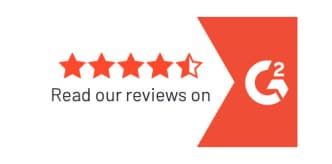You have a lot to consider when you’re thinking about starting a 401(k) at your small business. It’s a big step to take, and you want to make sure you’re ready. We have (predictably), put together a short list of things we think you should consider before sponsoring a 401(k) plan at your company, but we have also put together a list of things we think you should not consider.
That’s not because those things aren’t important; it’s because 401GO has built-in fintech solutions that make these considerations moot.
Let’s start with the considerations you will want to make.
1. Financial Stability
Before you seriously consider sponsoring a 401(k) plan for yourself and your employees, assess the financial stability of your business. Implementing a 401k plan can involve a number of costs such as employer contributions and administrative fees. While you should ensure that your business has the financial capacity to sustain these expenses in the long term without compromising other critical operations, if you work with 401GO, many of your administrative costs will be much lower than average. Additionally, new businesses that start a 401(k) may be eligible for a tax credit of up to 100% of startup costs up to $5K a year for the first three years.
2. Business Growth
Most small businesses start with either very few employees or none. If the business is successful and grows, it may require more employees to help run it. This is the stage at which many small-business owners start to think about offering a 401(k). It’s the time when you can make better predictions about the future, forecast earnings more accurately and be more reasonably certain that you will be able to sustain such a program.
3. Employee Retention
Once you have employees, you’ll want to keep them — the good ones at least. Most people know that the way to keep any relationship, in the workplace or otherwise, is to work to ensure that the other party is happy or at least content with the situation as it is. While there is definitely a wide variety of what employees and employers consider necessary and acceptable in an employee/employer relationship, there are a few things that most people agree are important. These include compensation, workplace environment/culture and benefits. If you fall short in one of these categories, the other two won’t matter much. No one will want to stay at a job where they are paid well and have great benefits but are yelled at, overworked and harassed. We’ll leave you to manage compensation and environment and focus only on benefits — a 401(k) program specifically.
A 401(k) plan is mentioned continuously by workers as one of the most important benefits an employer can offer. So if you want to keep your employees (and especially if you want to keep them away from the competition), consider sponsoring a 401(k) program at your company.
4. Legal and Regulatory Environment
Stay informed about retirement plan regulations and any legal obligations imposed on employers, or work with a financial advisor who can do this for you. It’s important to stay in the know about federal and state laws related to retirement plans, such as reporting requirements, contribution limits and compliance obligations. Ensuring that your business can meet these obligations helps to avoid potential penalties or legal issues.
If you work with 401GO, here’s what you won’t need to worry about:
1. Administrative Considerations
Many small-business owners need to tackle the jobs of evaluating the administrative requirements and responsibilities associated with managing a 401(k) plan. Not so with 401GO. We have fintech solutions that make quick work of many of these tasks, all with zero effort from you. You won’t have to worry about whether your business has the resources, time and expertise to handle plan administration or even the cost of outsourcing these responsibilities to a third-party administrator — we’ve got you covered.
2. Employee Communication
Depending upon whom you choose as your 401(k) plan administrator, you may need to put in time and effort to communicate with employees about the new retirement benefit and notify them of their eligibility to participate. It’s important to know who is eligible to participate and who is not, and to provide them with the info they need to decide about investment options and contribution levels. At 401GO, we can help with participant onboarding and notification, so you don’t have to go it alone.
Before moving forward, do these:
Create an Employer Contribution Strategy
If you are able and willing to make matching contributions to your employees’ accounts, determine how much this amount should be. Matching contributions aren’t mandatory, but they can incentivize employee participation and increase the value of the plan. Analyze your budget and align your contribution strategy with your business’s financial goals.
Do Market Research
Research and compare retirement plans offered by other businesses in your industry or region so you can understand the prevailing market practices and benefits packages provided by competitors. This can help you determine if offering a 401(k) plan is a competitive advantage or an industry norm that you need to match.
Determine Plans’ Design Flexibility
Consider the flexibility and customization options available in 401(k) plan design. Evaluate whether the plan can be tailored to meet your business’s specific needs and align with your company culture. Having a plan that can adapt to your changing needs can make it more suitable for implementation.
Seek Professional Guidance
For help making important decisions, look to retirement plan specialists, financial advisors or HR consultants who can provide insights into the specific considerations for your business. They can help you navigate the decision-making process, assess the financial impact and ensure compliance with regulatory requirements. 401GO partners with top financial advisors across the U.S. — ask us for a recommendation for a financial advisor in your area.



